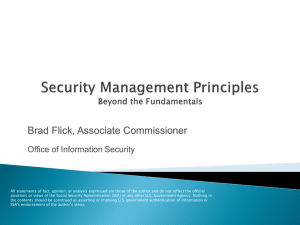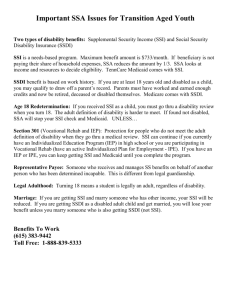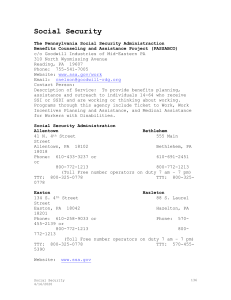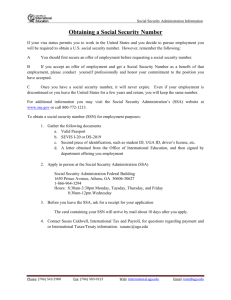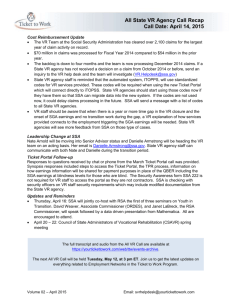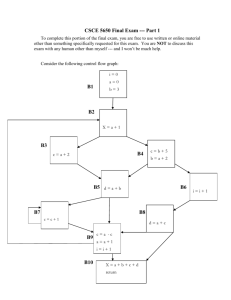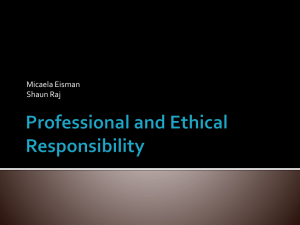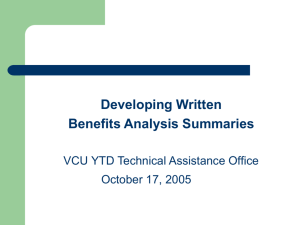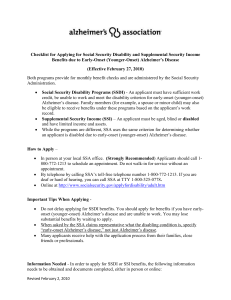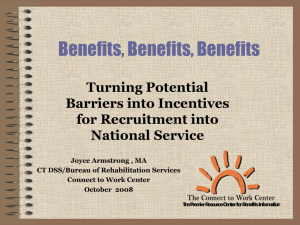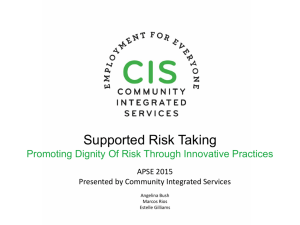Reporting income to SSA Fact Sheet
advertisement
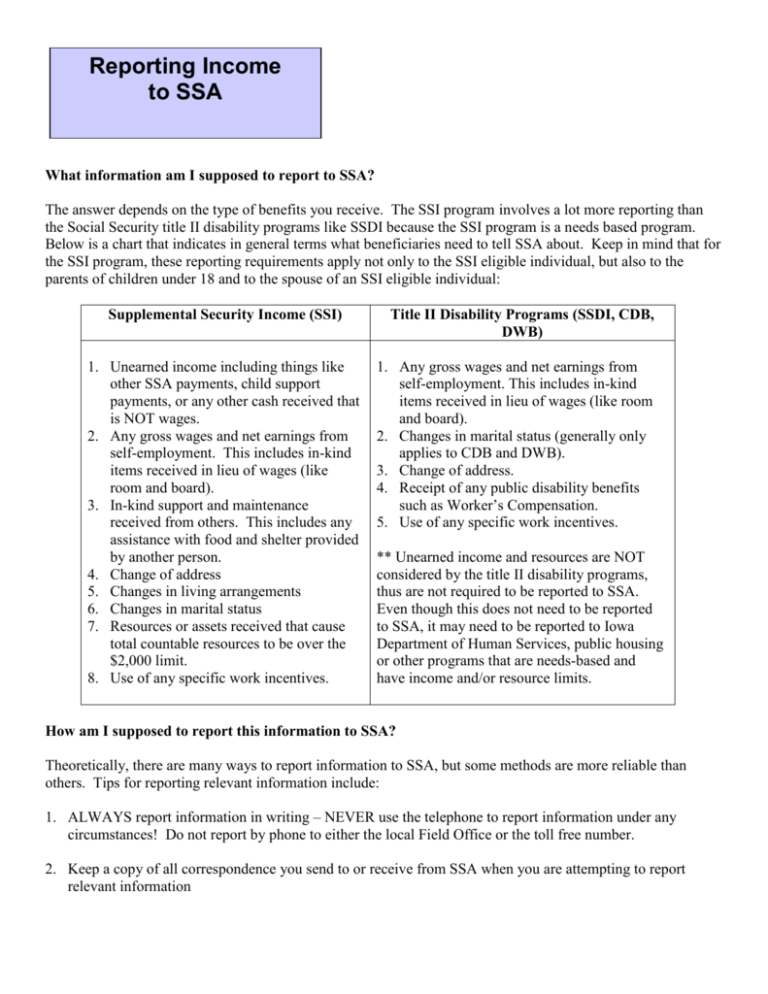
Reporting Income to SSA What information am I supposed to report to SSA? The answer depends on the type of benefits you receive. The SSI program involves a lot more reporting than the Social Security title II disability programs like SSDI because the SSI program is a needs based program. Below is a chart that indicates in general terms what beneficiaries need to tell SSA about. Keep in mind that for the SSI program, these reporting requirements apply not only to the SSI eligible individual, but also to the parents of children under 18 and to the spouse of an SSI eligible individual: Supplemental Security Income (SSI) 1. Unearned income including things like other SSA payments, child support payments, or any other cash received that is NOT wages. 2. Any gross wages and net earnings from self-employment. This includes in-kind items received in lieu of wages (like room and board). 3. In-kind support and maintenance received from others. This includes any assistance with food and shelter provided by another person. 4. Change of address 5. Changes in living arrangements 6. Changes in marital status 7. Resources or assets received that cause total countable resources to be over the $2,000 limit. 8. Use of any specific work incentives. Title II Disability Programs (SSDI, CDB, DWB) 1. Any gross wages and net earnings from self-employment. This includes in-kind items received in lieu of wages (like room and board). 2. Changes in marital status (generally only applies to CDB and DWB). 3. Change of address. 4. Receipt of any public disability benefits such as Worker’s Compensation. 5. Use of any specific work incentives. ** Unearned income and resources are NOT considered by the title II disability programs, thus are not required to be reported to SSA. Even though this does not need to be reported to SSA, it may need to be reported to Iowa Department of Human Services, public housing or other programs that are needs-based and have income and/or resource limits. How am I supposed to report this information to SSA? Theoretically, there are many ways to report information to SSA, but some methods are more reliable than others. Tips for reporting relevant information include: 1. ALWAYS report information in writing – NEVER use the telephone to report information under any circumstances! Do not report by phone to either the local Field Office or the toll free number. 2. Keep a copy of all correspondence you send to or receive from SSA when you are attempting to report relevant information 3. When reporting employment initially, or employment changes, always send a letter describing the critical information SSA needs to know about your job. This includes: Your name, address, phone number and Social Security Number Type of SSA benefits you are receiving Name, address and phone number of employing company Name of direct supervisor Date of hire/date of termination Pay rate and average number of hours worked per week Pay dates Job title 4. After the initial letter reporting employment or an employment change, keep all of your pay stubs. Local SSA Field Offices vary in terms of how frequently they want you to mail in your pay stubs to verify your earnings. Check with your Claims Representative BEFORE you start mailing in pays stubs. Be sure to keep a copy of the pay stubs before you mail them in! 5. SSI recipients generally have to report earnings more frequently than title II beneficiaries. Unless you are instructed otherwise by local FO staff, SSI recipients should mail in their pay stubs every quarter to minimize overpayments. 6. Do NOT assume that the check you receive from SSA is correct and has had wages accounted for. You need to know what your check SHOULD be and watch to make sure adjustments are made. 7. If you receive both SSI and a title II disability benefits, report earnings twice – once to the SSI program and again to the title II program. 8. If you are getting checks that you are not entitled to – do NOT spend them! Deposit them in the bank while you work with SSA to get your income accounted for. 9. Self-Employment situations are very different from wage employment in terms of how income is reported to SSA and when it is reported. Get assistance from a benefits planner to make sure you are keeping proper records. 10. Keep receipts for all of the specific work incentives you are claiming. SSI recipients should submit receipts during the annual redetermination. Title II beneficiaries should submit receipts when a work CDR is being conducted. .
